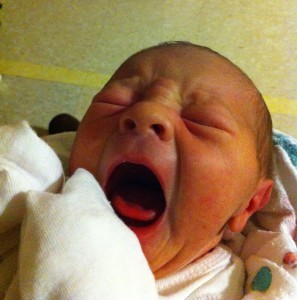With the arrival of the New Year many of us make resolutions about improving our health by eating better. As a breastfeeding mom, you may be wondering if it’s possible to eat well and safely lose weight while still caring for your baby.
Weight loss immediately after birth is quite dramatic. Birthing a baby, placenta and fluids can result in the immediate loss of 12 pounds or more. In the weeks and months that follow, however, your “baby weight” will come off more slowly. The good news is, most breastfeeding mothers lose weight easily, without depriving themselves of anything! In fact, many mothers find they have to eat more than they ever did before and STILL they lose weight. Those baby pounds come off like magic!
Since breastfeeding is such a great calorie burner, you may be tempted to eat a less than ideal diet. But just as in pregnancy, keep in mind you are eating for two! Continue reading


 About 6 weeks to 2 months postpartum, your health care provider will bring up the subject of birth control. Even though sex may be the farthest thing from your mind! Your doctor has your mental and physical health in mind when he talks to you about a birth control method. It can be devastating emotionally and physically to get pregnant again before you are ready.
About 6 weeks to 2 months postpartum, your health care provider will bring up the subject of birth control. Even though sex may be the farthest thing from your mind! Your doctor has your mental and physical health in mind when he talks to you about a birth control method. It can be devastating emotionally and physically to get pregnant again before you are ready.